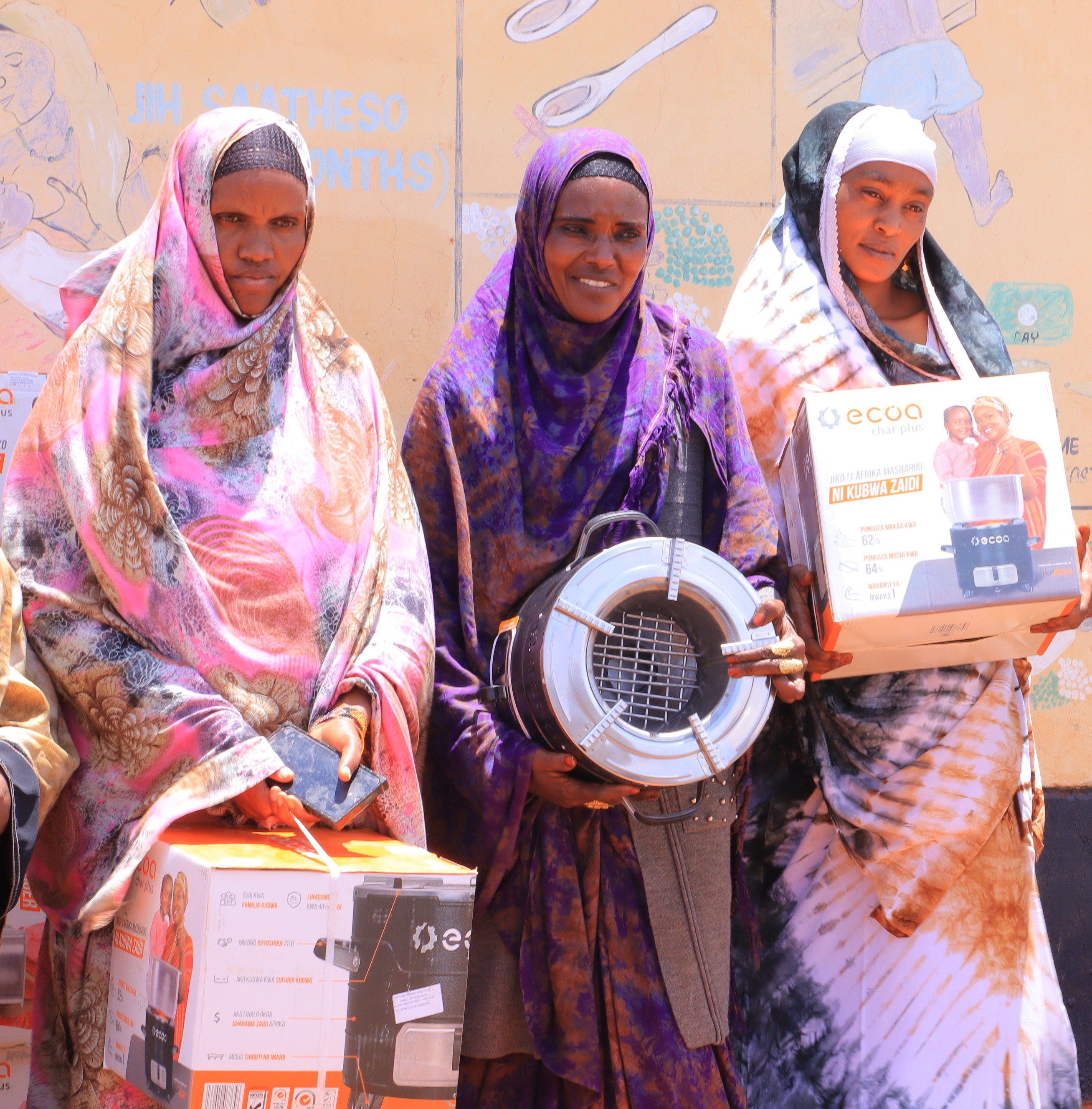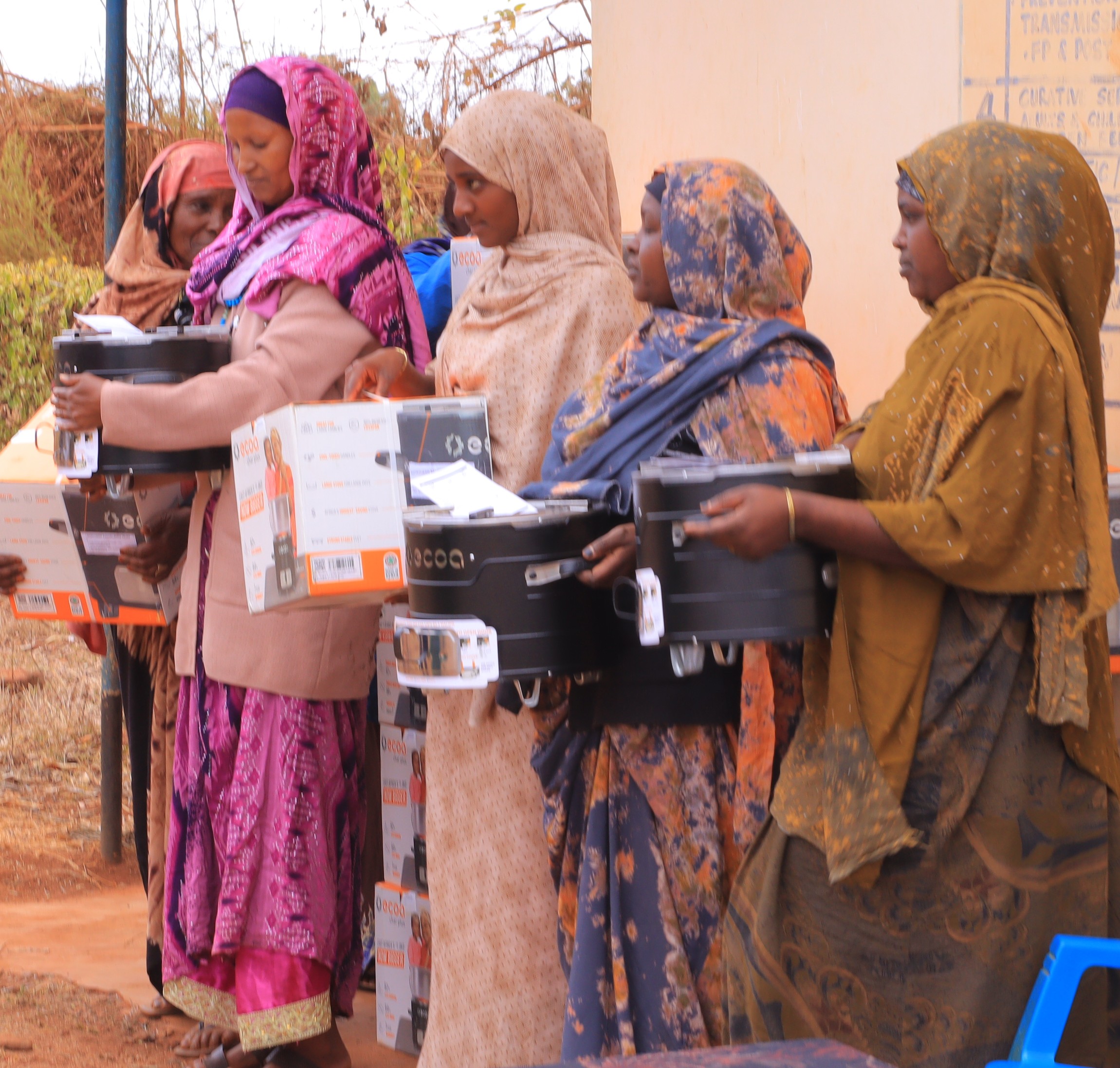
 Jaldesa and Qilta women display their eco-friendly stoves
donated from NRT courtesy of DANIDA. 80 per cent of households in Northern Kenya
still use firewood for cooking./STEPHEN ASTARIKO
Jaldesa and Qilta women display their eco-friendly stoves
donated from NRT courtesy of DANIDA. 80 per cent of households in Northern Kenya
still use firewood for cooking./STEPHEN ASTARIKO Jaldesa and Qilta women display their eco-friendly stoves
donated from NRT, courtesy of DANIDA.80 per cent of households in Northern Kenya
still use firewood for cooking./STEPHEN ASTARIKO
Jaldesa and Qilta women display their eco-friendly stoves
donated from NRT, courtesy of DANIDA.80 per cent of households in Northern Kenya
still use firewood for cooking./STEPHEN ASTARIKO
Women in Marsabit county on Monday had every reason to smile after 60 households in Jaldesa Conservancy received eco-friendly stoves designed to ease their daily struggles.
The initiative, spearheaded by the Northern Rangeland Trust (NRT) and funded by the Danish government through DANIDA, aims to reach 6,000 households across Isiolo, Marsabit and Samburu counties by 2026.
NRT programmes manager Gedhia Mamo said the project could not have come at a better time, noting that it would reduce the risks women face when collecting firewood from restricted areas such as Marsabit Forest.
“Too often, women and girls are exposed to attacks by wildlife, ethnic clashes, and even gender-based violence during these long treks. This initiative seeks to ease that burden while also addressing deforestation and harmful kitchen emissions,” she said.
The stoves, lined with cotton to filter carbon dioxide, are expected to cut household smoke pollution while reducing the time women and girls spend in search of firewood—time that can now be devoted to education or income-generating activities.
Jaldesa Conservancy manager Bonaya Jirma urged the government to integrate renewable energy policies that prioritise indigenous pastoralist communities, warning that the cost of inaction is not only environmental but also social.
For many beneficiaries, the stoves bring life-changing relief.
“Sometimes we walk up to 10km to collect wood. The load is heavy, the journey unsafe and the smoke leaves us with constant chest infections,” said 45-year-old Mumina Jillo from Manyatta Jillo.
Another beneficiary, Mumina Hussein from Laisamis, noted that while gas would be preferable, poverty and lack of rural refilling points have kept it out of reach. “Wood has been the only resource we could access for free,” she said.
The World Health Organization estimates that nearly 2.4 billion people globally still rely on wood, charcoal and kerosene for cooking. Household smoke kills 3.2 million people annually, most of them women and children.
In Kenya alone, 23,000 premature deaths are linked to indoor air pollution every year.
In Marsabit, where desertification is already threatening livelihoods, the eco-stove project is being hailed as a small but vital step in ensuring women, often invisible in the global energy transition debate, are not left behind.














